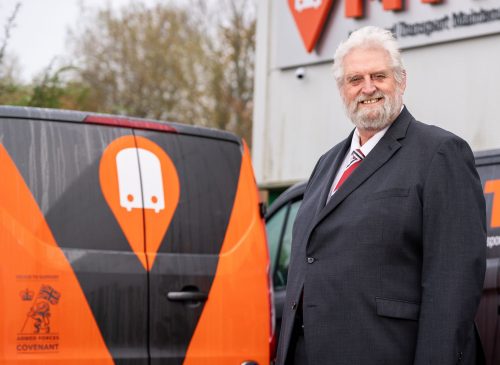End of production at Alstom factory labelled a ‘death-knell’

A member of the Midlands railway sector has characterised the potential closure of production at Derby’s Alstom train-manufacturing facility this week as “a death-knell” to the city, attributing it to a prolonged pattern of short-sighted economic decision-making.
Malcolm Prentice, the group chairman of rail maintenance firm MTMS and former managing director of Derby’s Garrendale, expressed concern over the potential closure, anticipating a prolonged recovery period for the city if the factory shuts down, resulting in the loss of 3,000 jobs.
Prentice’s remarks come after an interview on BBC Radio Four with Alstom’s managing director, Nick Crossfield, who disclosed that production at the Litchurch Lane site was nearing its conclusion, with an anticipated 18-month hiatus until the next order.
Crossfield said that the firm could no longer assure its presence in the city, acknowledging the ripple effects on the local and national supply chain due to any loss of work and employment in Derby.
While Prentice’s company, based in Moira, Leicestershire, remains unaffected by the situation at Alstom, he focused on the impact on Derby, where he spent the majority of his 40-year career in the railway sector.
He said: “This is a death knell for Derby, and for Derbyshire, in so many ways. We’ve gone from being at the heart of the Industrial Revolution to being on the verge of losing the industry that helped build the city because there has been a lack of investment in home-grown manufacturing building trains for our own rail network.
“That’s a legacy of a political and business approach that has focussed on the short-term economic gain from cutting costs and selling off assets to overseas companies rather than investing for the long term. Once these factories are gone and the skills are gone, they’re either gone for good, or it takes many years to build them back up again. If we lose Alstom and those 3,000 jobs, plus all the jobs in the supply chain, it will take Derby many years to recover.
“I certainly don’t think I will see its recovery in my lifetime, and that makes me feel very sad.”
MTMS, which services and maintains rolling stock and equipment at more than half of rail depots across the UK, serves such familiar names in mainline rail as First MTR South-Western Railway, Govia Thameslink Railway, Arriva and Siemens.
Prentice added: “This isn’t just about manufacturing. Transport is an important part of our country’s infrastructure and vital to us being a strong nation. Our economy relies on being able to transport the goods we import around the country and rail should be a big part of that, especially since the UK wants to cut emissions and become more sustainable.
“I don’t see the electric lorries, or the fleet of electric Amazon vans, that will deliver that to us, but I do know that rail is far more environmentally friendly than road haulage and should be at the heart of our national transport strategy. That isn’t happening, but it is across the rest of Europe, which has invested in its rail industry and is now way ahead of us.”








